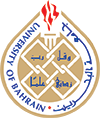Tracks
Track 1: AI and Machine Learning for Climate Adaptation and Sustainability
- Deep learning for climate modeling and forecasting
- Predictive analytics for natural disaster risk mitigation
- AI-driven ecosystem services assessment
- Machine learning in carbon footprint analysis
- Autonomous systems for environmental protection
Track 2: IoT, GIS, and Remote Sensing for Environmental Monitoring
- Wireless sensor networks for air and water quality monitoring
- Integration of GIS with real-time IoT data streams
- Remote sensing for vegetation, land-use, and biodiversity mapping
- Satellite-based urban heat island and coastal surveillance
- Edge computing for environmental anomaly detection
Track 3: Blockchain and Digital Finance in Green Economies
-
Blockchain for carbon credits and renewable energy certificates
-
Smart contracts for sustainable supply chain transparency
-
Green tokenization and decentralized climate finance
-
Digital ID systems for traceable environmental impact
-
Distributed ledger technologies for ESG compliance
Track 4: Digital Twins and Data-Driven Decision Making in Urban Resilience
-
City-scale digital twins for emergency planning and infrastructure resilience
-
BIM (Building Information Modeling) integration with urban sensors
-
Real-time simulation and forecasting in urban systems
-
Urban data lakes and digital dashboards for resilience analytics
-
Human-centered design in AI-powered urban platforms
Track 5: Smart Grid Technologies and Renewable Energy Integration
-
AI optimization of demand response in smart grids
-
IoT in grid edge devices and renewable forecasting
-
Blockchain-enabled peer-to-peer energy trading
-
Microgrid resilience and energy storage control systems
-
Interoperability standards for energy digitization (e.g., IEEE 2030.5)
Track 6: Cybersecurity in Sustainable Infrastructure
-
Security protocols for smart grids, water networks, and IoT systems
-
Threat modeling in digital infrastructure systems
-
Zero-trust architecture in smart urban platforms
-
Privacy-by-design in smart city data management
-
AI for intrusion detection and anomaly detection in critical systems
Track 7: Digital Innovations in Water, Waste, and Circular Economy
- AI and IoT in smart waste collection and recycling
- Digital twins in water distribution and leakage detection
- Decision-support systems for industrial symbiosis
- Predictive analytics for circular material flow optimization
- Remote sensing in water body health and pollution mapping
